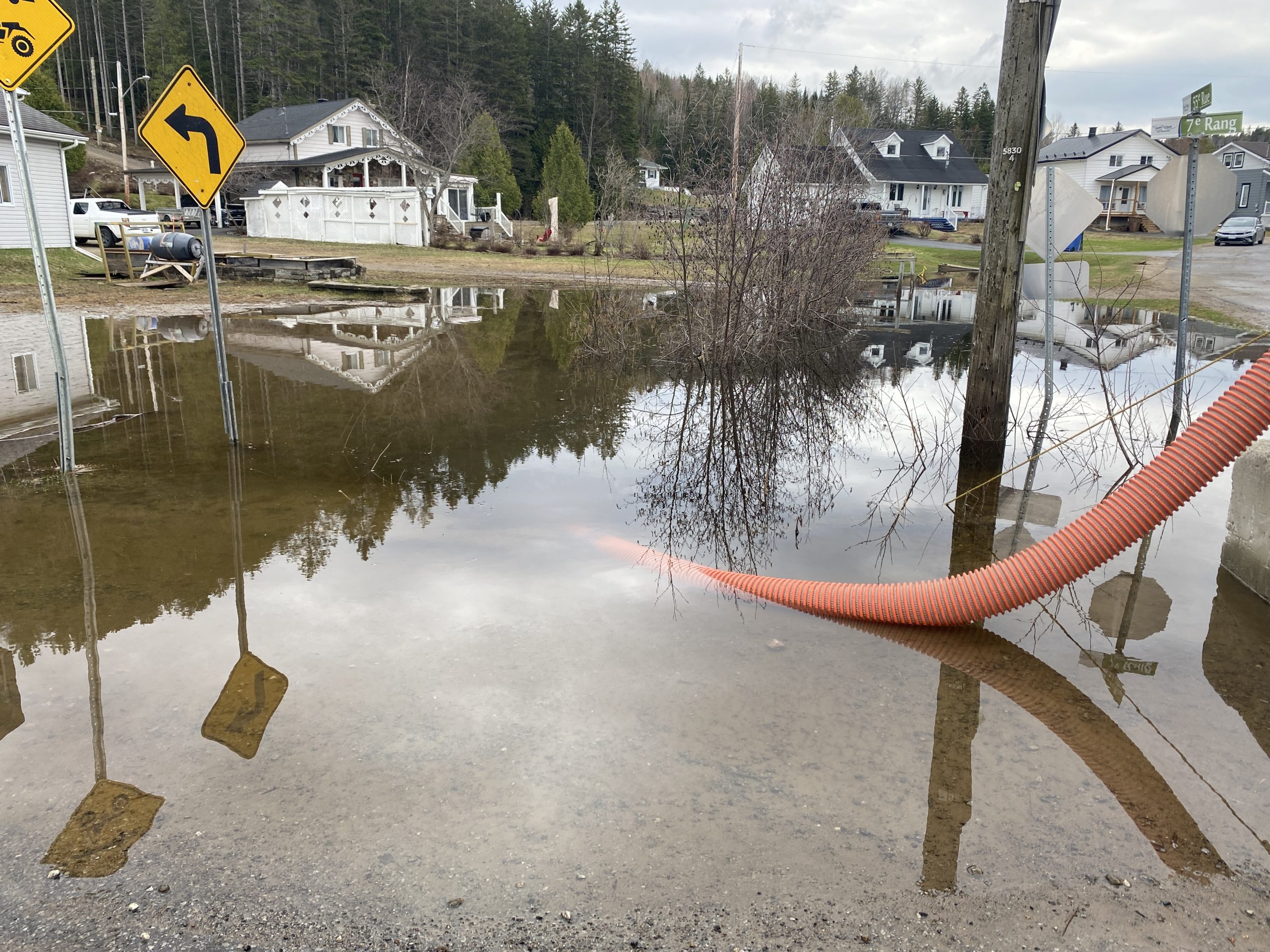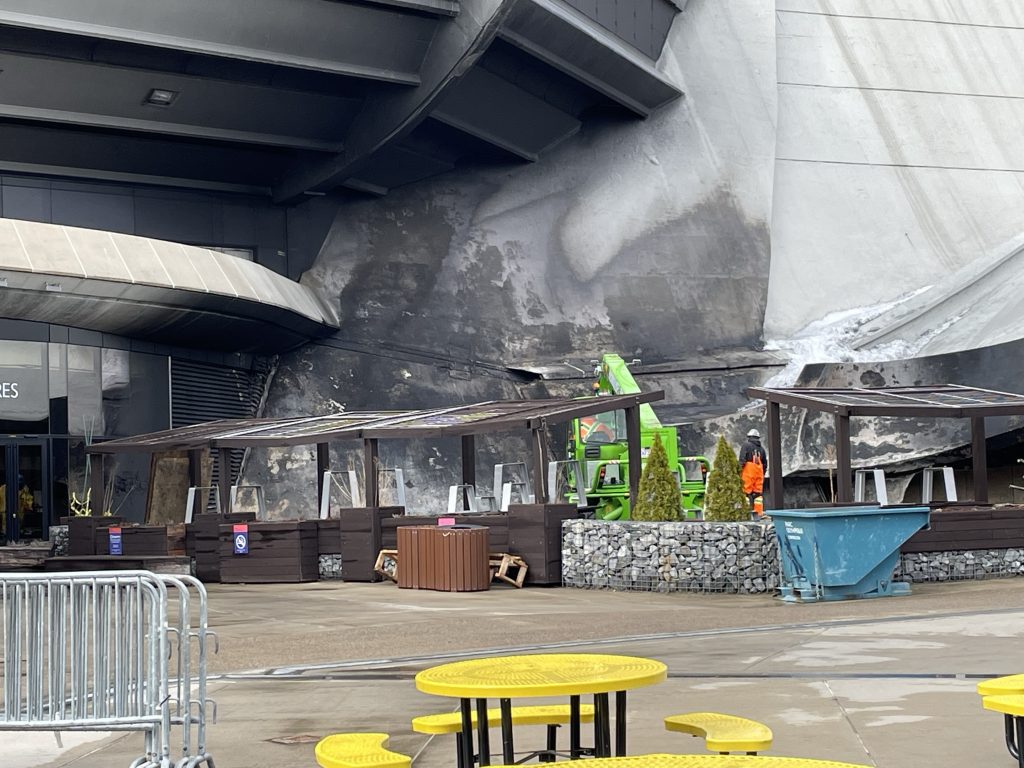Massive sinkhole in Rawdon after heavy rain, flooding
Posted May 2, 2023 3:28 pm.
Last Updated May 2, 2023 6:54 pm.
Rising waters, closed-off roads, evacuated homes and a massive sinkhole – residents of Quebec municipalities are trying their best to cope with major flooding.
In Rawdon, a sinkhole fully closed a two-lane road Monday evening.
“The pressure of the water came in. It was so intense that the culvert was not big enough to support the pressure that was against it,” said Mayor Raymond Rougeau.
“The water came through the culvert. The road gave way.”
The mayor says a city councillor drove through that road within an hour of it caving in.
“He was coming back from work, coming back to his home,” said Mayor Raymond Rougeau. “And 30 minutes later, an hour later, that gave in.”
The fire department remains on high alert, assisting residents in evacuations on a voluntary basis.
“Yesterday afternoon, our fire department evacuated some of our employees from our pumping station that we had the public water,” said Rougeau. “But they were back in today.”
Rougeau is telling residents to be careful.
“If you do drive slowly and check what’s going on around you,” he said. “And at the same time, if if there are people that could need some help, check in on them.
“So basically, it’s be careful if you don’t have to go out, don’t go out right now.”
#WATCH: “Yesterday afternoon the road gave way,” says Mayor of Rawdon Raymond Rougeau of heavy rains and flooding that collapsed part of a road in the town north of Montreal. “The pressure of the water was so intense.”
READ MORE: https://t.co/0X1PnbSH22 pic.twitter.com/v6mHnqmuBS— CityNews Montreal (@CityNewsMTL) May 2, 2023
Officials of the municipality of St-Côme in the Lanaudière region – about 115 kilometres north of Montreal – declared a state of emergency Monday.
Route 347 in St-Côme was blocked by flooding, and several other roads threatened to give way, officials warned.
Residents of Domaine du Lac France were urged to evacuate because a dam was at risk of breaching. That evacuation order was lifted late Tuesday morning.
“It’s pretty sad,” Cameron Grant, who lives about 10 kilometres away, told CityNews. “Some of them had to evacuate. Living by the river is pretty risky. Couple of years ago, it was high as well. And the road further up by the ski hill, the 347, is completely severed. So there’s no traffic coming from the next adjacent village.”
Heavy rains washed out roads and cut off homes in several regions across the province.
Grant says friends of his needed help sandbagging Monday, but he couldn’t get to their home because the road was completely blocked off.
Another St-Côme resident, Samuel, says the flooding has made access to the municipality quite challenging.
“We’re touristic place, so the people come from everywhere just to see us,” he said. “And for the last 24 hours, it’s a bit hard to travel.
They say go back because the river kept flowing up. So it’s quite a hard.”
#WATCH: “The road further up by the ski hill is completely the 347, it's completely severed,” said Cameron Grant who lives in Saint-Côme, where residents in parts of the community have had to evacuate due to flooding.
MORE: https://t.co/W7H3awJOOY pic.twitter.com/lkXk3lRhKH
— CityNews Montreal (@CityNewsMTL) May 2, 2023
Some said they’ve never seen anything like it.
“The water level rose so fast,” said Marieve Paradis, co-owner of a sports store. The 45 centimetres of snow on the ground about one week ago melted quickly, she said, leading rivers and lakes to swell rapidly.
“It’s unheard of,” Paradis added about the speed the water rose. “Even the mayor said he had never seen something like that, that people who have lived in that area for more than 50 years and it has never happened.”
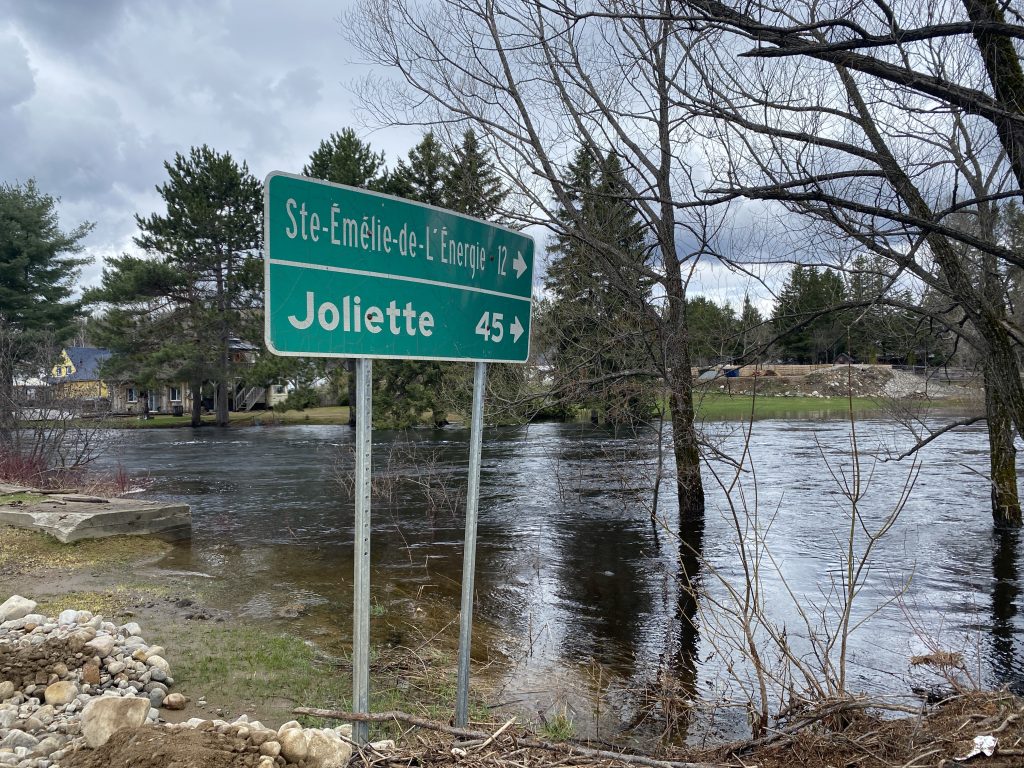
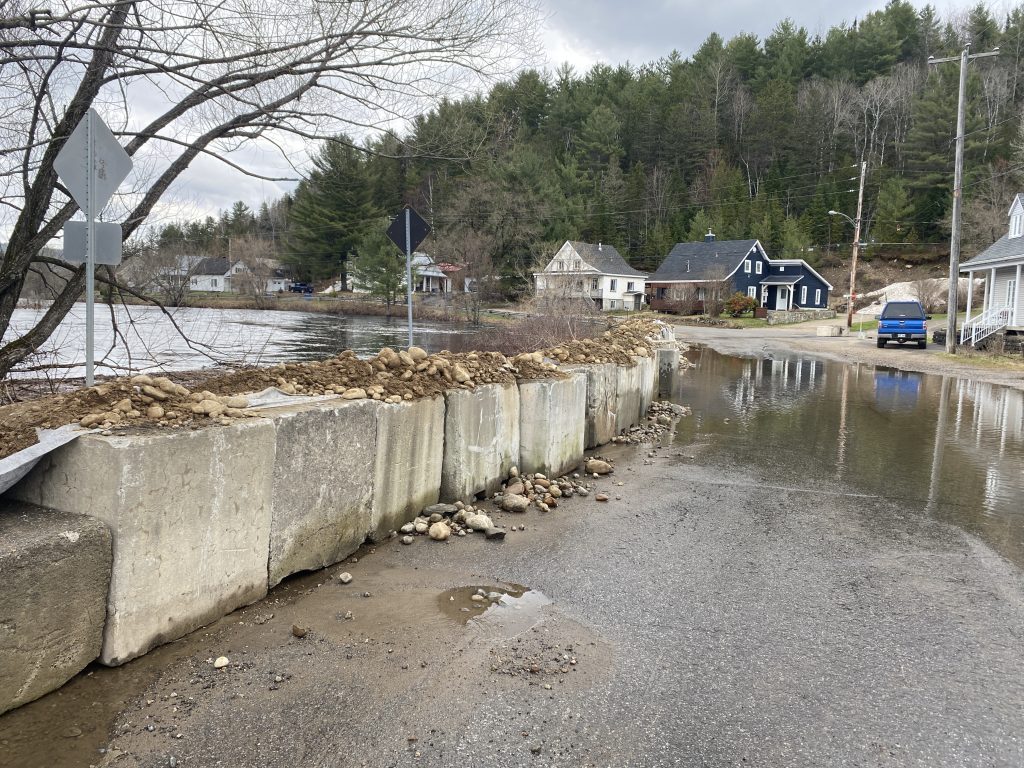
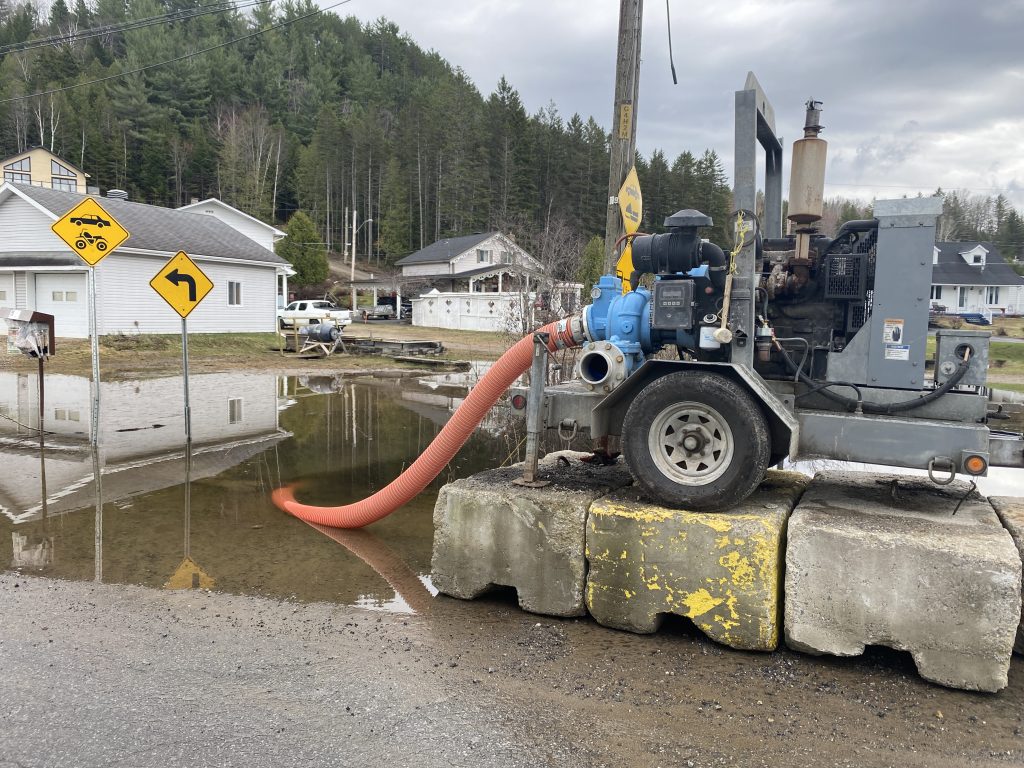
Two Quebec firefighters were swept away in floodwaters in Baie-St-Paul, northeast of Quebec City.
Quebec’s Public Security Department said there was major flooding along the Ottawa River at Baie Quesnel, just west of Montreal, and along the Riviere du Nord in St-Jerome, about 60 kilometres northwest of Montreal.
–With files from Alyssia Rubertucci and The Canadian Press
